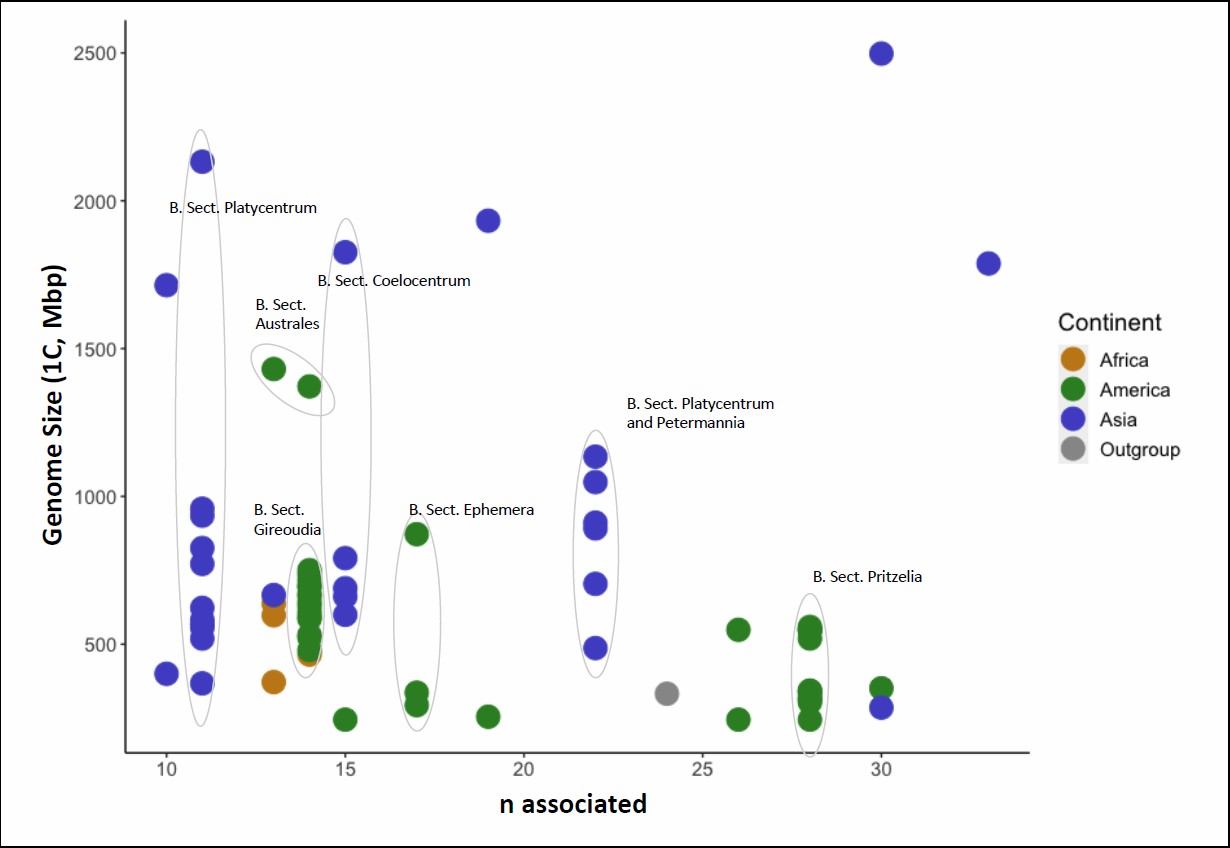EVOLUTIONARY PATTERNS OF GENOME SIZE AND CHROMOSOME NUMBER VARIATION IN BEGONIACEAE
DOI:
https://doi.org/10.24823/ejb.2022.1876Keywords:
Begonia, chromosomes, evolution, C-valuesAbstract
Cytological data resources are crucial to the study and understanding of the evolution of complex taxa. Recent research on the genus Begonia L. has provided a robust phylogenetic background for the analysis of evolutionary patterns across the group and has established that Begonia is variable in genome size and chromosome number. This paper provides an overview of the genome structural variation present in Begonia and an updated chromosome number and genome size dataset for the genus. Chromosome numbers of more than 400 species are presented and discussed within their current taxonomic and phylogenetic context. A more complete chromosome number dataset is available for Neotropical and Asian Begonia sections than for those from Africa. The distribution of chromosome numbers across phylogenetic trees supports the idea of Begonia sections as natural groups, because most variation is found between sections rather than within them. Some larger Begonia clades were found to have larger chromosome number variation. Moreover, groups with the most variable chromosome numbers belong to some of the taxonomically complex or unresolved Begonia sections. Genome size variation was found not to correlate with changes in chromosome number. It suggests that Begonia genome dynamics are caused not only by large-scale duplications, rearrangements, and changes in ploidy levels but also by changes in the repetitive fraction of the genome, which probably cause changes in chromosome size. This could potentially play an important role in species radiations.

Downloads
Additional Files
Published
Issue
Section
License
Copyright (c) 2022 L. Campos-Domínguez, J. Pellicer, A. Matthews, I.J. Leitch, C.A. Kidner

This work is licensed under a Creative Commons Attribution 4.0 International License.
Please read our Open Access, Copyright and Permissions policies for more information.

